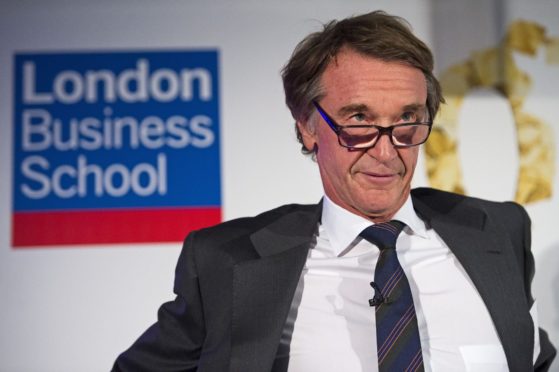Ineos subsidiary Inovyn and Wrightbus, maker of Aberdeen’s hydrogen buses, have signed a memorandum of understanding to increase the use of hydrogen across heavy-duty fleets in the UK, such as buses, trucks, and construction vehicles.
The companies, along with the UK Government will work together to realise the deployment of hydrogen which needs support on infrastructure, legislation, and investment.
Dream fuel for cutting emissions
Billionaire Jim Ratcliffe, the petrochemical giants’ founder, said: “Hydrogen is the dream fuel. You can heat your home with it. You can drive your car on it. Burn it and all it produces is energy and the only by product is water.
“We can all live with that. The world has committed to hugely reducing its carbon emissions and hydrogen is unquestionably going to play a large part in accomplishing this goal.”
Aberdeen led the way with hydrogen buses
Inovyn is Europe’s largest existing operator of electrolysis, the technology which uses energy to produce hydrogen.
In January this year Aberdeen launched the world’s-first fleet of hydrogen-fuelled double decker buses, with 15 vehicles costing £8.3m. The initiative was funded by the Aberdeen City Council, the European Union, and the Scottish Government.
They were produced by Jo Bamford’s company Wrightbus based in Ballymena, Northern Ireland.
As of mid-May Wrightbus estimated that the bus fleet had saved 170,000kg of CO2 from being released into the atmosphere – roughly the same as taking 42 automobiles off the road for a year.
Geir Tuft, Inovyn chief executive, said: “The agreement between Inovyn and Wrightbus presents our companies with opportunities to expand the use of low carbon hydrogen.
“By working together, I believe we can help drive forward the everyday use of hydrogen in heavy use transport fleets across the UK.”
Another part of the business, Ineos Automative, is also exploring the possibility of launching a hydrogen-powered Grenadier 4×4, which is their version of a Land Rover Defender.
Ineos already produces and uses 400,000 tonnes of low carbon hydrogen every year, the equivalent of replacing up to 2 billion litres of diesel.
And the company has announced that it intends to invest more than €2 billion (£1.6bn) in new production of green hydrogen across Europe.

